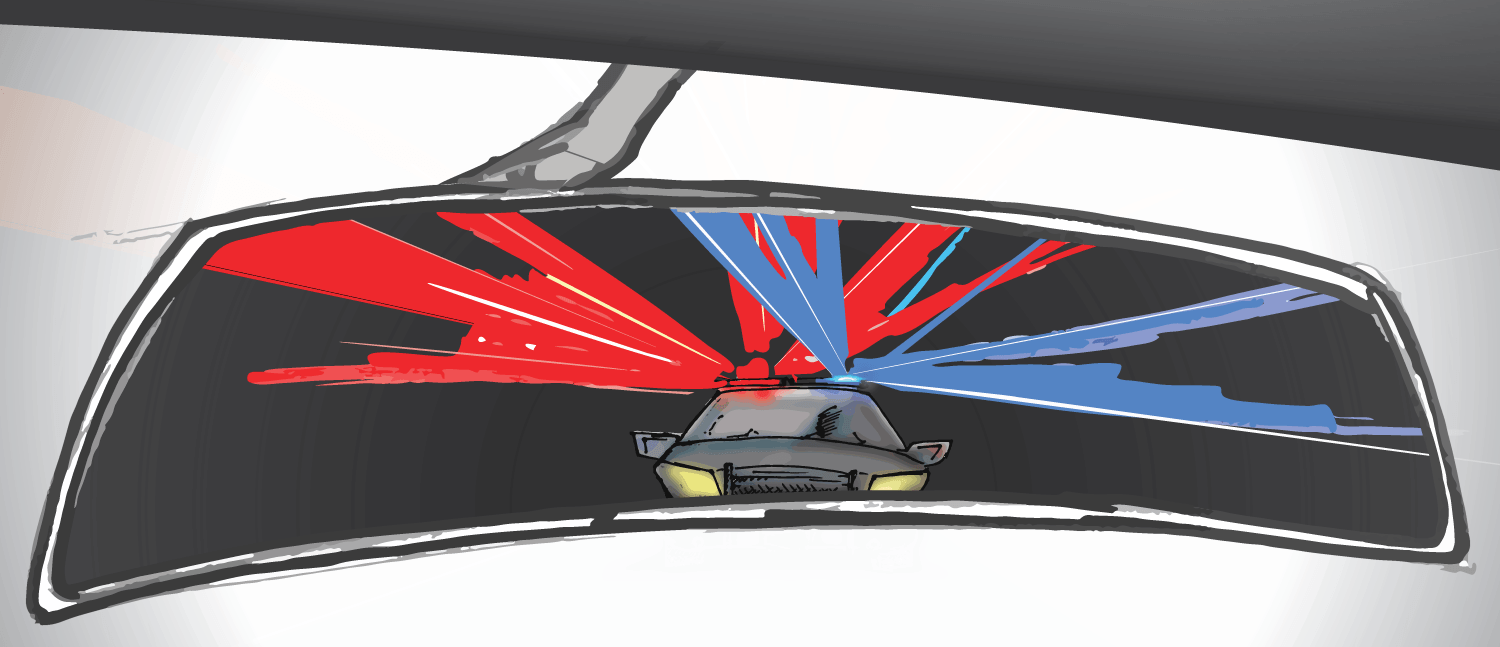
In State v. Hendricks, the WA Court of Appeals held that a traffic stop for Failure to Transfer Title was not unlawfully pretextual because the stop was initiated based upon running license plates as vehicles passed him and the deputy did not recognize the vehicle’s occupants until after initiating the traffic stop.
BACKGROUND FACTS
Ms. Ciulla was named as a protected party in a no contact order issued against
Hendricks. On September 8, 2016, the State charged Hendricks with Violation of a No-Contact Order, alleging that he knowingly had contact with Ciulla. Hendricks filed a CrR 3.6 motion to suppress evidence seized from the traffic stop leading to his arrest, asserting that there was no lawful basis for the traffic stop.
At the CrR 3.6 hearing, Clallam County Sheriff’s Deputy Federline testified that he
was on duty on the evening of September 7, 2016 when he saw a Mazda pickup truck and ran the license plate of the vehicle. Upon his check of the truck’s license plate, Deputy Federline found that more than 15 days had passed since ownership of the vehicle had changed, but the title had not been transferred.
When the truck passed, Deputy Federline also saw that the truck’s back license plate was partially obscured by a trailer hitch. Deputy Federline conducted a traffic stop of the truck. When Deputy Federline made contact with the vehicle’s occupants, he recognized Ciulla in the front passenger seat and Hendricks in the back seat. Deputy Federline arrested Hendricks. Following this testimony, Hendricks argued that Deputy Federline lacked authority to stop the truck based either on a failure to timely transfer title or on an obscured license plate.
The trial court denied Hendricks’s motion to suppress. Following the trial court’s denial of his CrR 3.6 suppression motion, Hendricks waived his right to a jury trial, and the matter proceeded to bench trial on a stipulated record. The trial court found Hendricks guilty of violation of no contact order. The trial court also found that Hendricks committed his offense against a family or household member. Hendricks appealed from his conviction.
COURT’S ANALYSIS & CONCLUSIONS
The Court of Appeals reasoned that the Fourth Amendment to the United States Constitution and article I, section 7 of the Washington Constitution generally prohibit searches and seizures absent a warrant or a recognized exception to the warrant requirement. One such exception to the warrant requirement is an investigative stop as set forth in Terry v. Ohio, a landmark search and seizure case which applies to traffic violations. Also, a law enforcement officer may conduct a warrantless traffic stop if the officer has a reasonable and articulable suspicion that a traffic violation has occurred or is occurring.
The court rejected Hendricks’s arguments that the failure to comply with RCW 46.12.650(5)(a)’s requirement of transferring title within 15 days of delivery of a vehicle does not constitute a traffic infraction under RCW 46.63.020 because the failure to timely transfer title is not a parking, standing, stopping, or pedestrian offense.
“The plain language of RCW 46.63.020 shows that the legislature intended to treat the failure to timely register a vehicle’s title as a traffic infraction and, thus, the trial court correctly concluded that Deputy Federline had an articulable suspicion justifying his stop of the vehicle in which Hendricks was riding as a passenger.”
Next, the Court of Appeals addressed whether the stop was unlawfully pretextual.
Pretextual Traffic Stops
The Court reasoned that Article I, section 7 of the Washington Constitution prohibits pretextual traffic stops. State v. Ladson, 138 Wn.2d at 358. A pretextual traffic stop occurs when a law enforcement officer stops a vehicle in order to conduct a speculative criminal investigation unrelated to enforcement of the traffic code. Ladson, 138 Wn.2d at 349. Whether a given stop is pretextual depends on the totality of the circumstances, “including both the subjective intent of the officer as well as the objective reasonableness of the officer’s behavior.” Ladson, 138 Wn.2d at 359.
I t further reasoned that a traffic stop is not pretextual even where the officer has an additional motivation for conducting the stop apart from a suspected traffic violation, so long as the officer’s purported motive in investigating a suspected traffic violation was an actual, conscious, and independent reason for the stop. State v.
Arreola, 176 Wn.2d 284, 299-300, 290 P.3d 983 (2012).
“Hendricks suggests that Deputy Federline had suspected the vehicle’s occupants of being
involved in drug activity and used the failure to timely transfer title as a pretext to investigate the vehicle and its occupants for drug related offenses,” said the Court. “This is pure speculation without any support in the record.”
The Court reasoned that Deputy Federline was the only witness at the CrR 3.6 hearing. Furthermore, the deputy testified that he was parked at an intersection running the license plates of southbound traveling vehicles when he saw the vehicle at issue. Deputy Federline began to initiate his traffic stop after finding that the title to the vehicle at issue was not timely transferred following a change in ownership. Finally, Deputy Federline recognized Hendricks and Ciulla only after initiating the traffic stop and contacting the driver of the vehicle.
“In short, Hendricks fails to identify any evidence in the record that would have supported a claim that Deputy Federline’s traffic stop was a pretext to investigate a crime unrelated to a suspected traffic infraction.”
Consequently, the Court held that because the record lacked of any evidence supporting a claim that Deputy Federline conducted a pretextual traffic stop, Hendricks can show neither deficient performance nor resulting prejudice from defense counsel’s decision to decline raising the issue at the CrR 3.6 hearing. Accordingly, the Court of Appeals affirmed Hendrick’s conviction.
Please contact my office if you, a friend or family member are charged with a crime. Hiring an effective and competent defense attorney is the first and best step toward justice.






